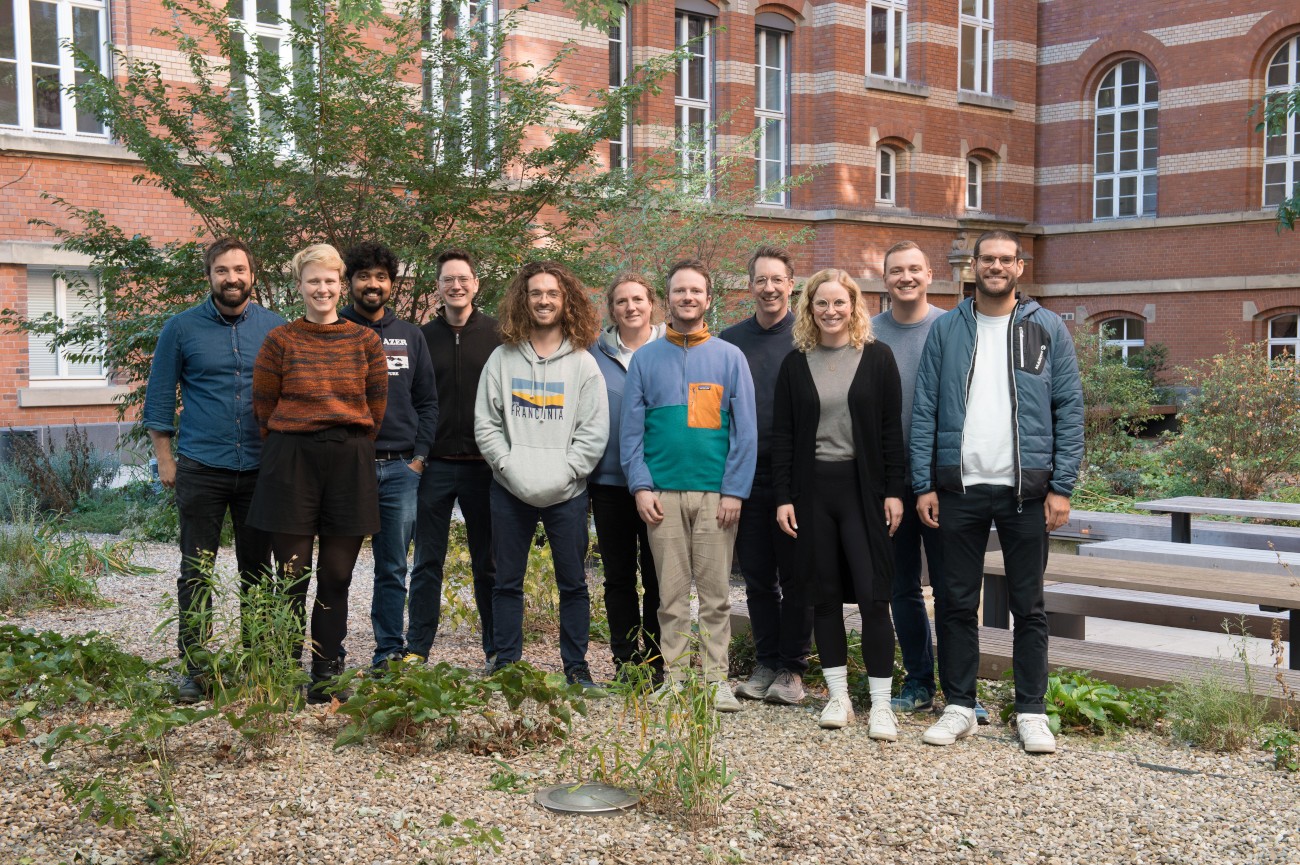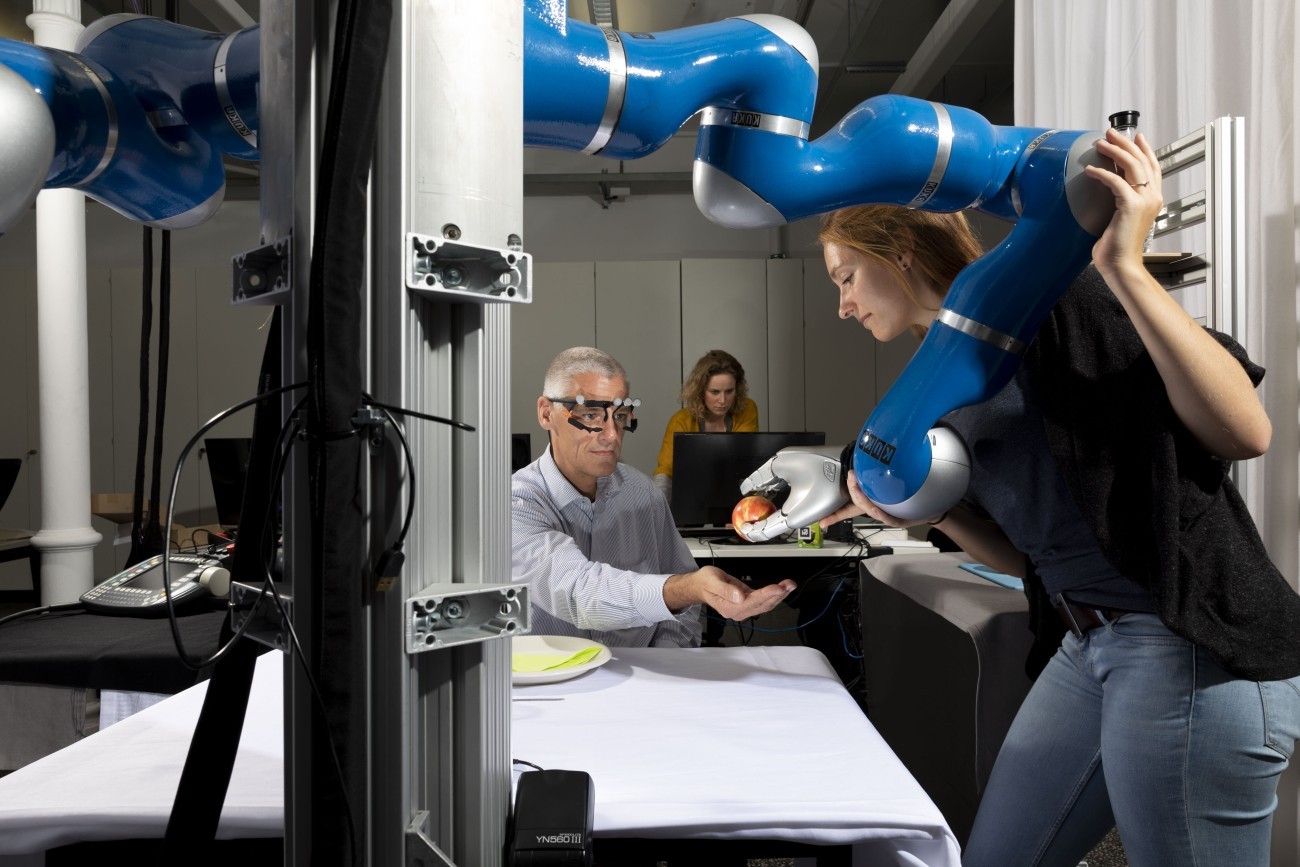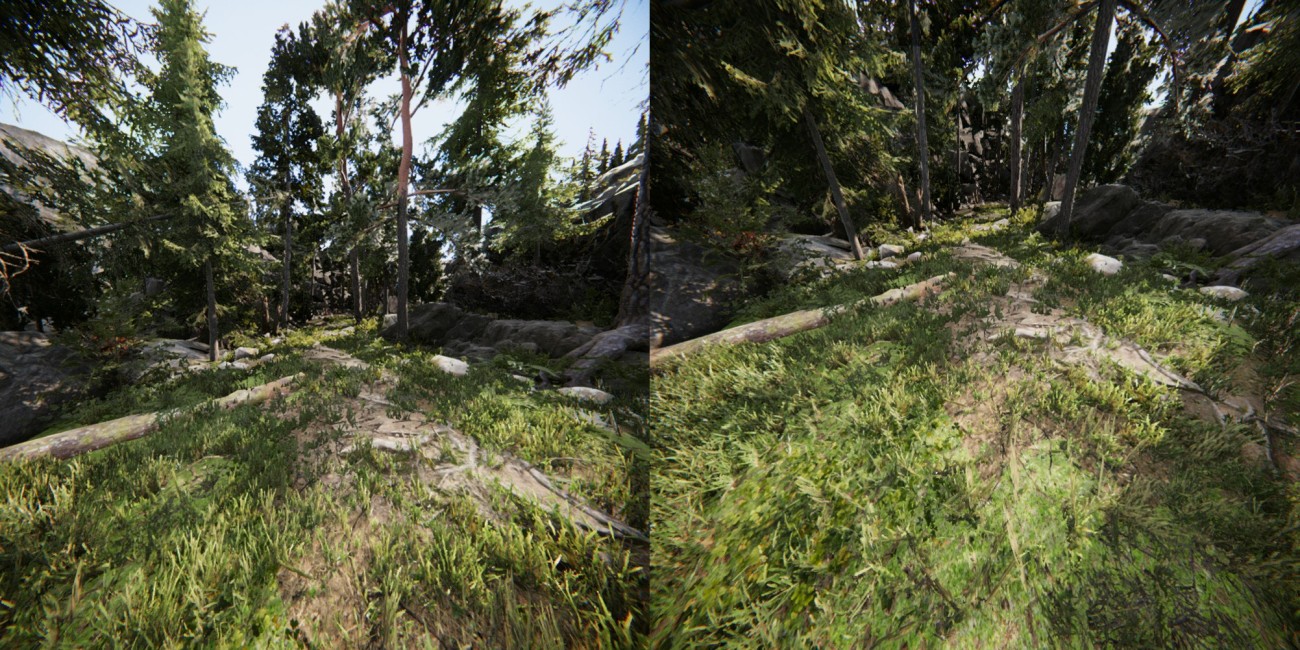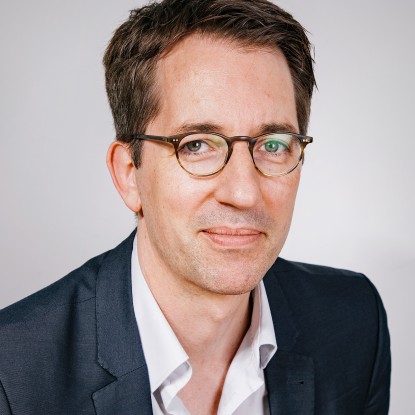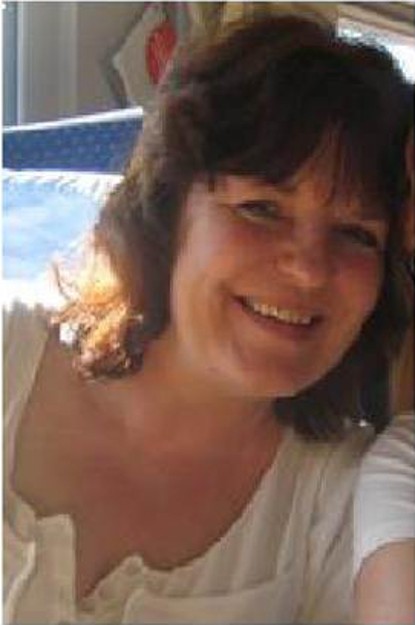29.-30. September – Constantin gave a talk at the Control theory approaches for analysing, modeling, and manipulating brain activity and cognitive function workshop at the Bernstein conference, Frankfurt, Germany
25. September - Constantin was invited to a discussion as part of the exhibition Cybernetics. Networked systems. at the art foundation of the DZ Bank, Frankfurt
01. – 05. September – Constantin gave a lecture at the International Interdisciplinary Computational Cognitive Science Summer School (IICCSSS), TU Darmstadt
29. August - Constantin gave a keynote talk at the Material Appearance Network for Education and Research (MANER) conference, Fraunhofer IGD, Darmstadt
24.-28. August - Our group contributed to the European Conference on Visual Perception (ECVP) in Mainz, Germany with several talks and posters on work together with our collaborators
12. – 15. August - Tobias presented our poster Tobias F. Niehues, Dominik Straub, Constantin A. Rothkopf: Revisiting Cost Functions in Sensorimotor Decision-Making at the 8th Annual Conference on Cognitive Computational Neuroscience, Amsterdam, The Netherlands
30. July – 2. August - Fabian Tatai presented our poster: Fabian Tatai, Dominik Ürüm, Maria Eckstein, Constantin Rothkopf: Physical reasoning during motor learning aids people in transferring mass, but not motorcontrol mappings at the Cognitive Science conference, San Francisco, USA
28.-29. July 2025 - Constantin gave a talk at the Neuroscience of the Everyday World Conference, Boston University, USA
24.-25. July 2025 - Constantin gave a talk at the Conference Das lernende Gehirn- Theorie und Geschichte eines Problems at TU Darmstadt
14-18 July 2025 - Inga is participating in the Cambridge Ellis Unit Summer School on Probabilistic Machine Learning 2025, Cambridge, UK
9. July 2025 - Inga gave a talk at the 3rd World Conference on eXplainable Artificial Intelligence: Generating rationales based on human explanations for constrained optimization, Istanbul, Turkey
3.-4. July 2025 - Fabian Tatai presented our poster Fabian Tatai, Dominik Straub, Dimitris Voudouris, Katja Fiehler & Constantin Rothkopf: Explaining suppression during reaching movements with optimal control at the TAM retreat, Rauischholzhausen Castle
30. June 2025 - Constantin gave a talk at the Human Ethomics Workshop (opens in new tab), University of Bayreuth
19. June 2025 - Constantin gave a colloquium talk at the Department of Cognitive Science, Central European University, Budapest, Hungary
11.-14. June 2025 – Matthias presented our spotlight poster Matthias Schultheis, Jana-Sophie Schönfeld, Constantin Rothkopf, Heinz Koeppl: “Belief inference in BAMDPs for human navigation'' at the Multi-disciplinary Conference on Reinforcement Learning and Decision Making (RLDM), at Trinity College Dublin, Ireland
22. May 2025 – we are very happy that both our proposal for an Excellence Cluster, ”The Adaptive Mind“ (TAM) and ”Reasonable Artificial Intelligence“ (RAI) are among the 70 projects across all Germany and all disciplines that will receive funding by the German Research Foundation (DFG) for 7 years, starting 2026.
16.-20. May 2025 – Constantin gave a talk at the Vision Sciences Annual meeting entitled ”Uncertainty in perceptual priors of sports balls' sizes scale independently of sensorimotor experience' and contributed to Club Vision.
01. May 2025 – new collaborative paper accepted at the International Conference on Machine Learning (ICML): Antonia Wüst, Tim Tobiasch, Lukas Helff, Inga Ibs, Wolfgang Stammer, Devendra Singh Dhami, Constantin Rothkopf, Kristian Kersting: Bongard in Wonderland: Visual Puzzles that Still Make AI Go Mad?
25. April 2025 - Constantin gave a talk 'Computational elements of goal-directed sensorimotor behavior' at the Workshop on Natural Environments Tasks and Intelligence at the University of Texas at Austin
24. April 2025 – we are excited to announce that we are part of the new Simons Collaboration on Ecological Neuroscience (SCENE)! This 10-year program with an amazing team spanning from neuroscience to machinelearning will investigate how the brain represents sensorimotor interactions.
24.-28. April 2025 – Tobias Niehues is presenting our poster: Dominik Straub*, Tobias Niehues*, Jan Peters, Constantin Rothkopf. Inverse decision-making using neural amortized Bayesian actors at the International Conference on Learning Representations (ICLR) in Singapore
14. April 2025 – Matthias Schultheis successfully defended his PhD thesis 'Inverse reinforcement learning for human decision-making under uncertainty' with distinction- congratulations!
10. April 2025 – Constantin gave a talk “Eye Movements As Sequential Decision-making Under Uncertainty” in the Bonn Melbourne Seminar in Decision Making and Computational Psychiatry
08. April 2025 - Constantin took part in a panel discussion at the Schirn Kunstahalle on the occasion of the exhibition 'Buenavista' by the artists group Troika
07. April 2025 – new paper accepted at the Annual Meeting of the Cognitive Science Society: Fabian Tatai, Dominik Ürüm, Maria Eckstein, Constantin Rothkopf. Physical reasoning during motor learning aids people in transferring mass, but not motor control mappings
31. March 2025 – Constantin gave a talk at the Cosyne Workshop on Navigation under Uncertainty with the unwieldy title: Moment to moment interactions of sensory, cognitive, and action uncertainty in probabilistic path-planning explain human navigation strategies, their errors and variability
25. March 2025 – New paper accepted at 3rd World Conference on eXplainable Artificial Intelligence (XAI-2025): I. Ibs, C. A. Rothkopf, Generating rationales based on human explanations for constrained optimization.
24.-28. March 2025 - the entire lab went for our lab retreat to the Darmstädter Haus in Hirschegg, Kleinwalsertal, Austria
19. March 2025 – Constantin gave a talk How can cognitive science help understand what artificial intelligence systems cannot yet do? at the Interdisciplinary College IK
06. March 2025 – Dominik Straub successfully defended his PhD thesis 'Inverse normative modeling of continuous perception and action' with distinction- congratulations!
14. February 2025 - new paper out with Claire Ott, Inga Ibs, and Frank Jäkel in Thinking and Reasoning: Towards a taxonomy of tasks for human sequential decision-making
17. January 2025 – new collaborative paper out in PLoS Computational Biology with Jiang Mao and Alan Stocker: Adaptation optimizes sensory encoding for future stimuli
01. December 2024 – new paper with Inga Ibs, Claire Ott, and Frank Jäkel out in Cognitive Systems Research: From human explanations to explainable AI: Insights from constrained optimization
05. October 2024 – first step in our collborative study investigating transdiagnostic markers in TAM: Study protocol TransTAM: Transdiagnostic research into emotional disorders and cognitive-behavioral therapy of the adaptive mind
29. September 2024 - Constantin gave a talk 'Reverse engineering goal directed sensorimotor behavior with inverse optimal control' in the 'Physics of cognition: dynamical models of the ordered and disordered brain' workshop at the Bernstein Conference, Frankfurt
20. September 2024 – our collaborative AFI-DFG project 'A Shift towards Dynamic Perception Analysis with Continuous Psychophysics (SHIFT)' with Joan Lopez Moliner is being funded! Thanks to the funding agencies, the German Research Foundation DFG and the Spanish Agencia Estatal de Investigatión (AEI).
01-13 September 2024 – Dominik Straub is participating in the Visual neuroscience from spikes to awareness summer school, Rauischholzhausen
26-30 August 2024 – Tobias Niehues is participating in the ELLIS Doctoral Symposium in Paris, France
15 August – Jolande Fooken joined the lab as a postdoc. Welcome!
12-23 August 2024 – Tobias Thomas is participating in the Analytical Connectionism Summer School at the Flatiron Institute, NYC, USA
26 July 2024 – we are co-organizing the workshop on Models of Human Feedback for AI Alignment at the international conference on machine learning, ICML
24-27 July 2024 – we are presenting two posters at the Cognitive Science Conference in Rotterdam, Holland: 'If it looks like online control, it is probably model-based control' with Dominik Straub & 'Task diversity and human decision-making: a taxonomic view' with Inga Ibs, Claire Ott and Frank Jäkel
6 July 2024 – new paper out in Nature Communications: Fabian Kessler, Julia Frankenstein & Constantin A. Rothkopf Human navigation strategies and their errors result from dynamic interactions of spatial uncertainties
1-5 July 2024 – Constantin taught at the ELLIS CoGenAi summer school on Collaborative and Generative AI at Aalto University, Helsinki, Finnland
19 June 2024 – Fabian Kessler, Julia Frankenstein, and Constantin presented a poster 'Dynamic sequential interactions of spatial uncertainties shape human navigational strategies, their errors, and variability' at the 5th interdisciplinary navigation symposium iNAV2024 in Merano, Italy
01 June 2024 – new collaborative paper out in the Journal of Vision with Jozsef Arato and Jozsef Fiser: Eye movements reflect active statistical learning
20 May 2024 – Constantin gave a talk entitled 'Open Questions in Animate Vision' at the memorial symposium in honor of Dana Ballard in Austin, Texas, USA
17 – 22 May 2024 – our lab presented two talks and four posters at the Vision Sciences Society annual meeting, St. Pete, Florida, USA
03 May 2024 - new paper out in Cognitive Science: S. Depeweg, C. A. Rothkopf, F. Jaekel. Solving Bongard Problems with a visual language and pragmatic constraints.
26 April 2024- Susanne Trick successfully defended her thesis 'Bayesian Fusion of Probabilistic Forecasts' with distinction- congratulations!
15 April 2024 – Tobias Niehues started as a PhD student in the lab- welcome!
11 April 2024 – Constantin gave a talk at nature conferences 'Transformative Technologies for Neuroengineering' in Shenzhen, China
06 April 2024 - new paper accepted at the Annual Meeting of the Cognitive Science Society: D. Straub, C. A. Rothkopf. If it looks like online control, it is probably model-based control
05 April 2024 – new paper & book chapter out: F. Kessler, J. Frankenstein, C. A. Rothkopf. Navigation in real-world environments. In: Encyclopedia of the Human Brain, 2nd edition, edited by Jordan Grafman, Elsevier
18 March 2024 - together with Vivian Paulun we organized a symposium at TeaP 2024 in Regensburg: 'Seeing, thinking, and acting in a physical world'
02 February 2024 – both proposals we are contributing to The adaptive mind and Reasonable AI made it to the second round of the Excellence Strategy: congratulations and a big thank you to everybody involved!
23 January 2024 – Florian Kadner successfully defended his thesis 'Active vision as sequential decision-making under uncertainty' with distinction- congratulations!
12 January 2024 – new paper out: T. Thomas, D. Straub, F. Tatai, M. Shene, T. Tosik, K. Kersting & C. A. Rothkopf: Modelling dataset bias in machine-learned theories of economic decision-making, Nature Human Behaviour
24 November 2023 - new paper out: Trick, S., Rothkopf, C., & Jäkel, F: A normative model for Bayesian combination of subjective probability estimates. Judgment and Decision Making.
15 October 2023 – our symposium 'Seeing, thinking, and acting in a physical world' together with Vivian Paulun has been accepted at Teap 2024
05 October 2023 – Constantin gave a talk at the Center for Mind, Brain and Behavior, University of Giessen
29 August 2023 - Susanne Trick gave a talk 'What Can I Help You With: Towards Task-Independent Detection of Intentions for Interaction in a Human-Robot Environment' at the IEEE International Conference on Robot and Human Interactive Communication (RO-MAN), Busan, Kora
8 August 2023 – Constantin gave a talk 'Why are sensory, internal model, and action uncertainties inseparably intertwined in natural behavior?' and Fabian Tatai presented a poster 'People use Newtonian physics in intuitive sensorimotor decisions under risk' at the Workshop on Uncertainty in sensory processing and action control, Rauischholzhausen
28 July 2023 - Fabian Tatai gave a talk at the annual meeting of the Cognitive Science Society: 'People use Newtonian physics in intuitive sensorimotor decisions under risk' and Florian Kadner presented a poster 'Finding your way out: planning strategies in human maze-solving behavior', Sydney, Australia
21 July 2023 – Constantin gave a talk at the Zuckerman Institute for Mind, Brain, and Behavior, Columbia University
12 July 2023 – Constantin gave a talk at the CoCoSci group at MIT
25 May 2023 – we are happy to contribute to CCN: Fabian Kessler, Julia Frankenstein, Constantin Rothkopf: 'Optimal feedback control under uncertainty explains errors, variability and behavioral strategies in human navigation' and Fabian Tatai, Dominik Straub, Constantin Rothkopf: 'Humans use Newtonian physics in intuitive sensorimotor decisions under risk'
23 May 2023 – we presented a poster on multistep planning of eye movements in visual search at the conference on Curiosity, Creativity and Complexity at the Zuckerman Institute, Columbia University
19 May 2023 – Constantin gave a talk in the Symposium on Continuous Psychophysics at the Vision Sciences Annual Meeting in St. Pete Beach, USA
26 April 2023 – Congratulations to Susanne Trick, who has been selected as a recipient of the German AI-Newcomer Awards 2023 (#KI-Newcomer*innen) which is awarded every two years by the German Federal Ministry of Education and Research and the German Informatics Society
21 April 2023 – new empirical study out on people learning to adjust their visuomotor interception strategies: Huaiyong Zhao, Dominik Straub, Constantin A. Rothkopf: People learn a two-stage control for faster locomotor interception, Psychological Research
06 April 2023 – two papers have been accepted at the Cognitive Science conference: F. Kadner, H. Willkomm, I. Ibs, C. A. Rothkopf, Finding your way out: planning strategies in human maze-solving behavior and F. Tatai, D. Straub, C. A. Rothkopf, People use Newtonian physics in intuitive sensorimotor decisions under risk.
21 February 2023 – Nils Neupaertl's PhD thesis: Interacting with an uncertain physical world: probabilistic models of human perception and action was selected as best PhD thesis in the department of human sciences in 2022. Congratulations!
21 January 2023 – our abstract Fabian Kessler, Julia Frankenstein, Constantin Rothkopf: 'Optimal control under uncertainty predicts variability in human navigation behavior' has been accepted to COSYNE
05 January 2023 - Florian Kadner and Tobias Thomas are presenting our poster 'Improving saliency models' predictions of the next fixation with humans' intrinsic cost of gaze shifts' at the IEEE/CVF Winter Conference on Applications of Computer Vision (WACV)
14 December – Constantin gave a talk at the Computational Cognitive Neuroscience seminar at UKE, Hamburg-Eppendorf
01 December – Constantin gave a talk in the SFB 1528 – Cognition of Interaction – Colloquium at the University of Goettingen
03 November – Constantin gave a talk in the Colloquium Cognitive Systems at the University of Ulm
07 October - eLife published a digest about our continuous psychophysics paper entitled: fixing misperceptions.
06 October- Constantin gave a talk at the retreat of the Affective and cognitive mechanisms of specific Internet-use disorders (ACSID) research group
03 October – Constantin gave a colloquium talk at the Bernese talks in Sport Science at the University of Bern, Switzerland
16 September - our abstract: Claire Ott, Inga Ibs, Constantin Rothkopf, Frank Jäkel: 'Leveraging human optimization strategies for automatic explanation generation' has been accepted at the workshop on human behavioral aspects of (X)AI, Birkbeck, University of London
15 September – new paper accepted at the 36th Conference on Neural Information Processing Systems (NeurIPS): Matthias Schultheis, Constantin A Rothkopf, Heinz Koeppl: Reinforcement Learning with Non-Exponential Discounting.
05 September - we are presenting a poster at the biannual conference of the German cognitive science society KogWis in Freiburg: Vojtěch Rada, Julia Frankenstein, David Sedláček, Zdeněk Míkovec, Constantin A. Rothkopf: Towards understanding spatial illusions in architecture – a pilot study exploring factors influencing illusive perspectives.
1 September – Fabian Tatai started as a PhD student- welcome!
15 June - our keynote + tutorial 'Inverse optimal control for continuous psychophysics' has been accepted to the Conference on Computational Cognitive Neuroscience!
24 March – new publication in Nature Machine Intelligence from our collaboration with Kristian Kersting's lab doing psychological experiments with large scale language models: Patrick Schramowski, Cigdem Turan, Nico Andersen, Constantin A. Rothkopf & Kristian Kersting: Large pre-trained language models contain human-like biases of what is right and wrong to do
17 March – we have been awarded an ERC Consolidator grant by the European Research Council for our proposal ''ACTOR – Towards a computational account of natural sequential behavior“! Here the university's press release.
23 February - Dominik Straub received one of two John I. Yellott Travel Awards for Vision Science, which are given annually to a graduate student or postdoctoral researcher attending the Vision Sciences Annual Meeting to present research 'that provides new quantitative insights into the human visual system' for the contribution: Dominik Straub, Constantin Rothkopf. An analysis method for continuous psychophysics based on Bayesian inverse optimal control. Congratulations!
08 February 2022 – we are participating in the Vision Sciences Society annual meeting with three talks and one poster: Florian Kadner, Tabea A Wilke, Thi DK Vo, David Hoppe, Constantin A Rothkopf: Trade-off between uncertainty reduction and reward collection reveals intrinsic cost of gaze switches; Dominik Straub, Constantin A. Rothkopf: An analysis method for continuous psychophysics based on Bayesian inverse optimal control; Tobias Thomas, David Hoppe, Constantin A. Rothkopf: Measuring the cost function of saccadic decisions reveals stable individual gaze preferences
28 January 2022 – we are participating in COSYNE: Dominik Straub, Matthias Schultheis, Constantin Rothkopf: Inferring implicit sensorimotor costs by inverse optimal control with signal dependent noise
21 January 2022 – new paper accepted at the 25th International Conference on Artificial Intelligence and Statistics (AISTATS): Susanne Trick, Constantin A Rothkopf: Bayesian Classifier Fusion with an Explicit Model of Correlation
12 January 2022 – Constantin gave a talk at the invited symposium on 'active learning' at the Budapest CEU Conference on Cognitive Development (BCCCD)
08 December 2021 – new paper out: N. Neupärtl, F. Tatai, C. A. Rothkopf: Naturalistic embodied interactions elicit intuitive physical behaviour in accordance with Newtonian physics, Cognitive Neuropsychology
30 November 2021 – Constantin gave a talk in the nip-colloquium in Tübingen: From ideal observers to bounded actors through inverse optimal control
01 November 2021- Philipp Hummel joined the lab as PhD student- welcome!
28 September 2021 – new paper accepted at the 35th Conference on Neural Information Processing Systems (NeurIPS): Matthias Schultheis, Dominik Straub, Constantin A Rothkopf: Inverse Optimal Control Adapted to the Noise Characteristics of the Human Sensorimotor System
24 August 2021 – Constantin gave a talk 'Open problems in modeling naturalistic sequential behavior' at the Special Symposium in honor of Michael F. Land at the European Conference on Visual Perception, ECVP
July – August 2021 – Inga participated in the Oxford Machine Learning Summer School (OxML 2021)
05 – 23 July 2021 – Fabian participated in NeuroMatch Academy: Computational Neuroscience
12 May 2021 – we are presenting AdaptiFont, our human-in-the-loop font that adapts its shape to the way readers interact with it at CHI, the Conference on Human Factors in Computing Systems. Watch the talk on youtube.
01 February 2021 - we have been successful in two cluster grant applications. The collaborative cluster ”The adaptive Mind“ with the universities of Giessen and Marburg investigates the principles and computational basis for the balance between stability and change in human adaptability.
The second cluster, ”The third wave of AI", in collaboration with AI center hessian.ai, the Goethe University, Frankfurt and the University Mainz, focuses on the development of a new generation of AI systems that are more human-like.
04 December 2020 – Our collaborative LOEWE Research Cluster WhiteBox has been approved for funding by the Hessian State Ministry of Higher Education, Research and the Arts. WhiteBox is joining the twin disciplines AI and Cognitive Science. Starting 2021, an interdisciplinary team will develop whitebox methods to foster human understanding of natural and artificial intelligence and its results.
29 September 2020 – Constantin gave a talk 'Reverse engineering behavioral costs and benefits with inverse reinforcement learning' in the Workshop 'Inferring and testing optimality in perception and neurons' at the Bernstein Conference
15 September 2020 – Constantin is part of the ELLIS (European Laboratory for Learning and Intelligent Systems) faculty of the newly launched ELLIS Unit at TU Darmstadt
31 August 2020- we are part of the founding members of the Hessian Center for AI
06 July 2020 - new article in the popular science magazine 'Spektrum der Wissenschaft' together with Albert Newen, Nele Russwinkel and Martin V. Butz
24 June 2020 – Constantin gave a talk as part of smartstart's 'midsummerbrains- computational neuroscience from my point of view'
15 June 2020 – Niteesh Midlagajni joined the lab as PhD student- welcome!
02 June 2020- Inga Ibs joined the lab as PhD student- welcome!
15 May 2020 – invited keynote at the virtual Symposium on Explainable Machine Learning for Biomedical Data Analysis and Care Robotics, Universität Oldenburg, Germany
01 April 2020 – the German Federal Ministry of Education and Research (BMBF) has approved our collaborative grant PlexPlain with Kristian Kersting, Frank Jaekel, and Florian Steinke
16 March 2020 - the lab is closed due to the Covid-19 pandemic
15 February 2020 – Fabian Kessler has joined the lab as PhD student- welcome!
10-14 February 2020 – Constantin is teaching at the Minds and Machines Workshop in Cognitive Science, Artificial Intelligence and Education at the University of Luxembourg together with Pedro Cardoso-Leite, Paul Schrater, and Christophe Schommer

